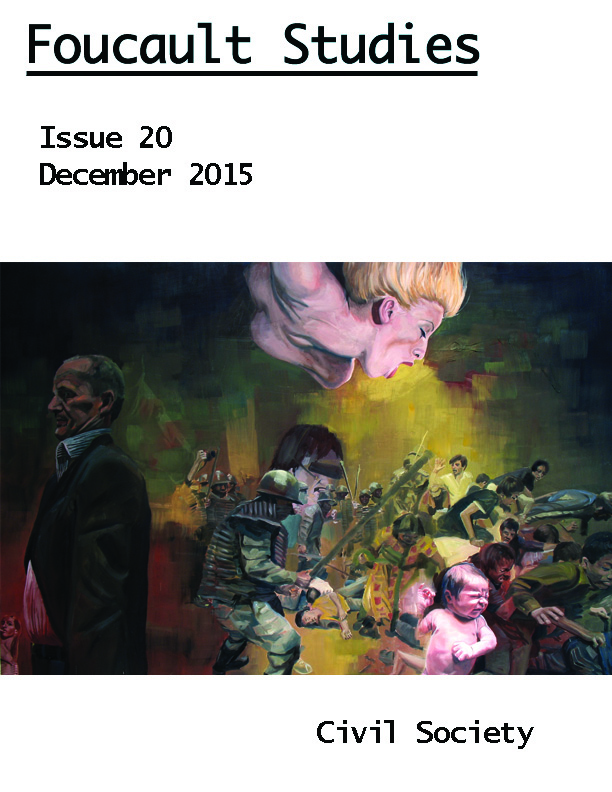Foucault, Ferguson, and civil society
DOI:
https://doi.org/10.22439/fs.v0i0.4928Keywords:
civic virtue, Ferguson, genealogy, intellectual history, interests, societyAbstract
In contrast to those who trace civil society to “community” per se, Foucault is keen to locate this concept as it emerges at a particular moment in respect of specific exigencies of government. He suggests that civil society is a novel way of thinking about a problem, a particular problematization of government that emerges in the eighteenth century and which combines incommensurable conceptions of the subject as simultaneously a subject of right and of interests. This article takes up Foucault’s discussion of the Scottish Enlightenment in The Birth of Biopolitics to trace the distinctiveness of his discussion of civil society, but also in order to suggest that we ought to pay closer attention to the tensions between commercial-civilizational and civic republican themes in the literature of the late eighteenth century than does Foucault. It is my tentative suggestion that Foucault’s account leaves out significant aspects of these debates that offer counter-valences to the dominant models of the subject available to contemporary political discourse.Downloads
Published
2015-12-19
How to Cite
Ashenden, S. (2015). Foucault, Ferguson, and civil society. Foucault Studies, (20), 36–51. https://doi.org/10.22439/fs.v0i0.4928
Issue
Section
Special Issue on Civil Society
License
Authors retain copyright to their work, but assign the right of the first publication to Foucault Studies. The work is subject to a CC BY-NC-ND 4.0 license, but despite these restrictions, authors can take for granted that Foucault Studies will permit articles published in Foucault Studies to be translated or reprinted in another format such as a book providing a full reference is made to Foucault Studies as the original place of publication.



